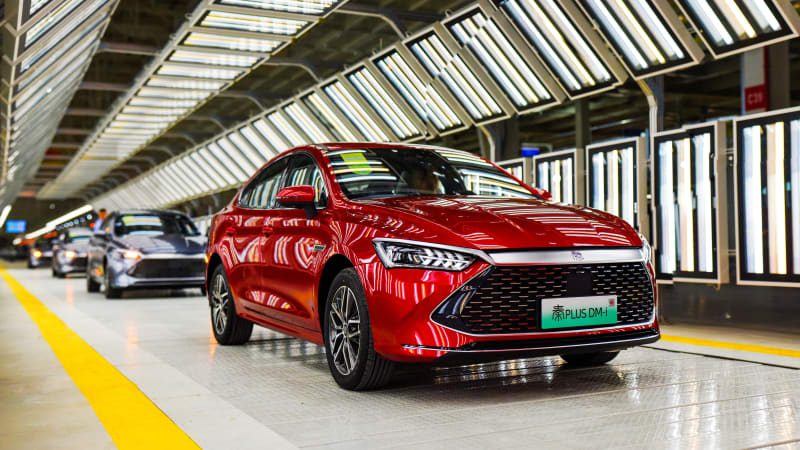Chinese automakers to take majority of home market for first time

Chinese auto brands are on track to account for just over 50% of the cars sold in their home market this year thanks to a growing dominance in electric vehicles, consultancy AlixPartners said on Wednesday.
It would represent the first time Chinese automakers have controlled a majority share of China’s car market — the world’s largest.
For the past four decades, China’s auto market has been dominated by established global brands such as VW and Toyota operating in joint ventures with Chinese partners.
But competitive pricing, faster rollouts of new models and the rise of domestic electric carmakers like BYD, Nio and Xpeng Motors have changed the dynamic for made-in-China auto brands.
China passed Japan as the world’s largest auto exporter in the first quarter of this year.
AlixPartners forecast China’s overall auto sales would grow 3% this year to 24.9 million vehicles, recovering to the level of sales before COVID-19. It forecast growth to 30.6 million vehicles in 2030, when it projected more than half of vehicles sold in China would be EVs.
China’s market for what it calls “new energy vehicles” (NEVs), including plug-in hybrids and pure electrics, has benefited from the equivalent of $57 billion in subsidies from the government during 2016 to 2022, the consultancy said.
By contrast, the U.S. government has provided $12 billion in subsidies over that time, AlixPartners said.
But Chinese EV makers have also gained ground from a focus on features such as advanced driver assistance systems even on cheaper cars, the firm said.
That competitiveness will make Chinese automakers as disruptive to established global automakers in coming years as Tesla has been, said Stephen Dyer, who heads AlixPartners automotive consulting in Asia.
“It would be the best for foreign brands to learn from new Chinese EV startups if they want to survive in China or face the disruptive impact from those brands in their home markets,” Dyer said at a briefing.
Dyer forecast annual sales of Chinese-branded cars in overseas markets would grow to 9 million vehicles by 2030. That would give Chinese brands 30% of global share and a market share of 15% in Europe, 19% in South America and 19% in South East Asia and South Asia.
China’s market also faces massive overcapacity, and Dyer forecast a wave of consolidation. Only 25 to 30 out of the 167 NEV brands can survive by 2030, Dyer said. Over two-thirds of those brands haven’t recorded any sales last year, he said.
“Even with best-in-class operations, it takes up to 400,000 units of annual production to reach breakeven,” he said.



